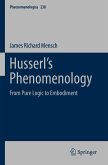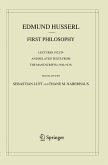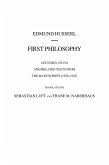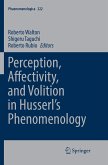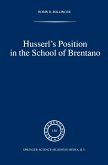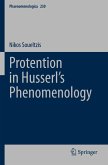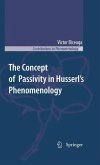This text examines the many transformations in Husserl's phenomenology that his discoveries of the nature of appearing lead to. It offers a comprehensive look at the Logical Investigations' delimitation of the phenomenological field, and continues with Husserl's account of our consciousness of time. This volume examines Husserl's turn to transcendental idealism and the problems this raises for our recognition of other subjects. I details Husserl's account of embodiment and examines his theory of the instincts. Drawing from his published and unpublished manuscripts, it outlines his treatment of our mortality and the teleological character of our existence. This book appeals to students and researchers and presents a genetic account of our selfhood, one that unifies Husserl's different claims about who and what we are.
Bitte wählen Sie Ihr Anliegen aus.
Rechnungen
Retourenschein anfordern
Bestellstatus
Storno


